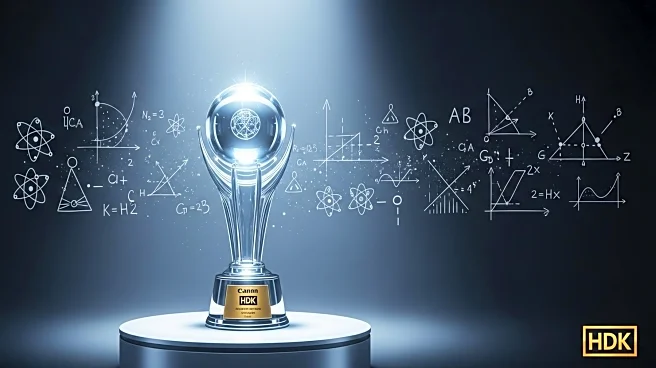What's Happening?
In recent years, a variety of science prizes have emerged, aiming to rival the prestigious Nobel Prizes. These include the Breakthrough Prize, Turing Prize, and others, which have been established to address gaps in the Nobel categories and offer larger financial rewards. The Breakthrough Prize, for instance, awards $3 million to winners in mathematics, fundamental physics, and life sciences. Despite their growing significance, these newer awards have not yet matched the prestige of the Nobels, according to experts like Robert Langer from MIT. The Nobel Prizes remain the ultimate accolade in scientific achievement, with a historical legacy that newer awards are striving to emulate.
Why It's Important?
The emergence of these new science prizes reflects a broader recognition of diverse scientific fields that the Nobel Prizes do not cover, such as mathematics and technology. This development is significant as it provides recognition and financial support to a wider range of scientific endeavors. However, the continued dominance of the Nobel Prizes underscores the challenges these new awards face in achieving similar prestige. The focus on individual achievements in these prizes also highlights ongoing debates about the recognition of collaborative scientific efforts. The expansion of science prizes could potentially democratize recognition in the scientific community, offering opportunities for underrepresented fields and researchers.
What's Next?
As these newer science prizes continue to gain traction, they may influence the landscape of scientific recognition and funding. The scientific community might see increased competition among these awards to attract top talent and groundbreaking research. Additionally, there could be a push for these prizes to evolve in ways that better acknowledge team-based scientific achievements. The ongoing dialogue about the inclusivity and scope of science prizes may lead to further innovations in how scientific excellence is recognized and rewarded globally.
Beyond the Headlines
The rise of alternative science prizes also raises questions about the cultural and historical weight of the Nobel Prizes. While the Nobels have a storied history, the newer prizes offer a chance to redefine what constitutes scientific excellence in the modern era. This shift could lead to a more inclusive and comprehensive understanding of scientific contributions, potentially reshaping the criteria for what is considered award-worthy in the scientific community.









